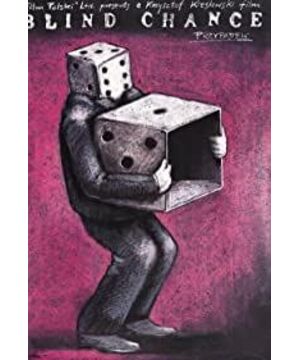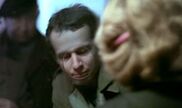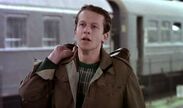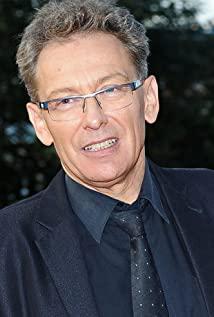What we get is a mockery of our goals, our future, and the movie delivers that mockery well.
- "Thus Said Kieslowski"
"From a personal point of view, there is no such thing as a political film. An artist should not talk about politics, a good artist should talk about what he can see. Is it sincere? Sincerity is the key."
- Krzysztof Pieshewicz
For creators, the Iron Curtain environment is like a plague, and creators cannot escape its influence and even harm. It penetrates into works and leaves an indelible mark on creators. At this time, although Chier's creation has begun to turn to the discussion of metaphysical things, the emotion of using political elements is still very strong.
The exploration of the complex and multiple possibilities of fate is Kieslowski's causal fable with a heavy meaning in the context of socialism.
The film is also known as "Blind Chance" - Blind Chance. Kier makes three "what-if" propositions about the fate of a fictional individual while gazing at Poland's scarred political history. The coin of destiny was thrown at an inadvertent historical moment, you chose to listen or betray, and then made a blind choice, creating blind faith, and then you boarded a completely different life train and sailed to an unknown station.
Cause and effect one: The man caught up with the train and listened to the old party members' words, and entered the system, but he finally became the scapegoat of his boss and got a fucking life.
Cause and effect 2: The man did not catch up with the car, but was taken away by the station police. He knew and joined the anti-government organization. He had theological beliefs, but in the end, the situation took a turn for the worse, and he was still unable to escape from the Iron Curtain environment.
Cause and effect three: The man did not catch up with the car and was not taken away. Then he gave up making any political choices, returned to his past state and lived a stable life, but died unexpectedly in the end.
"We are surrounded by politics, and it affects us all the time," said Kier. Three political movements in Polish society at the time appeared in the film. In the last scene of the last story, the men stay away from the political wave and in what seems to be a happy ending. Died suddenly in the middle of the walk (however he survived the first two "deep in the mire" stories). The individual will is insignificant in the wave of ideology, the Polish society at that time was destroyed and despicable, ideology has formed countless iron nets in such a society, even if you try to stay away from them, you will eventually It is still impossible to escape the involvement of Iron Fist, and the mockery of fate is nothing more than this.
When faced with the choice of a fork in the road, people are often confused, and confusion leads to blindness of choice. The protagonist of the story, Witke, has at least three possibilities in this film. When he makes a choice, he doesn't know what kind of "station" his chosen belief will take him to (and he doesn't even know exactly what he believes in.) ), it is better to say that endless opportunities are taking him to the terminal of fate, and all the seemingly important subjective choices are blind and powerless in the face of fate.
Opportunity haunts the train of fate, and a person's self-shaping often determines which car gets on and when he gets on and off, and even the slightest difference can make a huge difference in the future. Although it can be seen from the details that the characters of the protagonists in the three stories are different, Kier did not raise the role of "human subjectivity" in fate to the thematic level discussed in this film. In emphasizing the firm control of "opportunity" over fate: subjective choices may be able to change the trajectory of the fate train, but the terminal has already been arranged. Maybe the road is full of anxiety and fear of the unknown ahead, and the terminal is even dark, but on this road of destiny, there is a wonderful journey that is always full of personal marks and will not stop before reaching the end.
The male protagonist at the beginning of the film screamed in horror with a big mouth like a black hole, which can be associated with his fear of the impending explosion in combination with the ending of the film. But after two hours of discussing fate, can it also be seen as his fear of this fate full of unknown and incomprehensible?
View more about Blind Chance reviews











